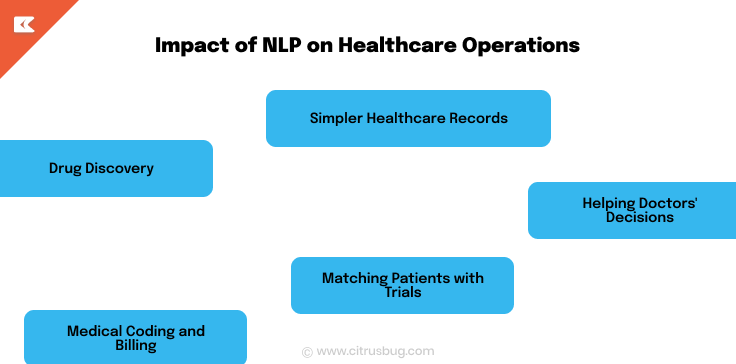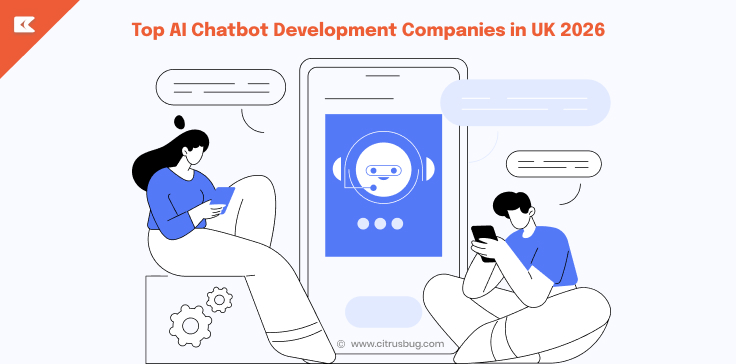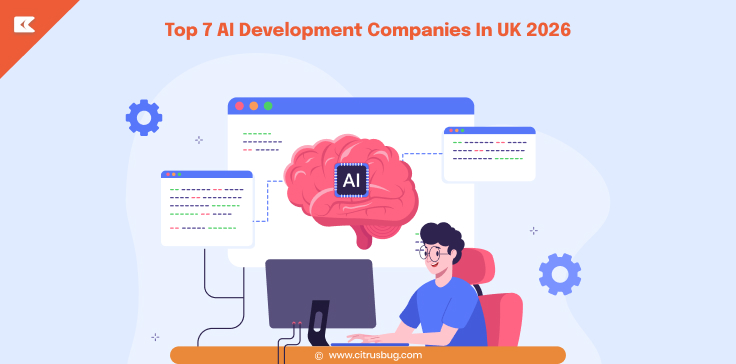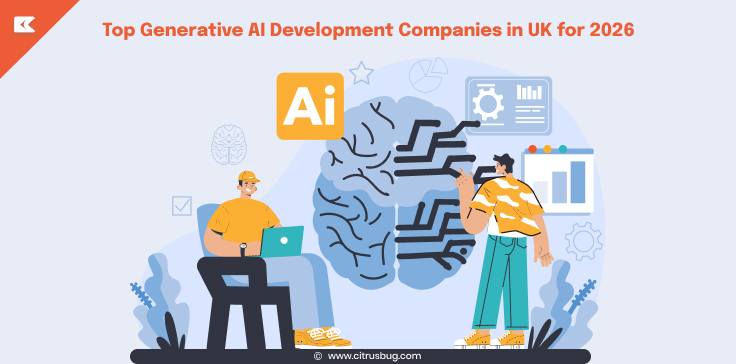Custom NLP Solutions for Healthcare: Revolutionizing Patient Interaction
- November 26, 2024
-
3675 Views
- by Ishan Vyas
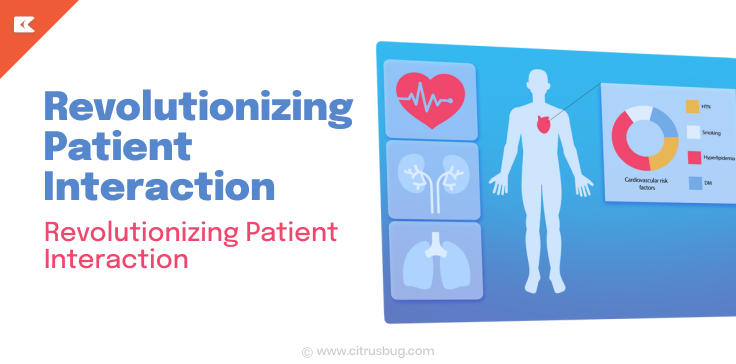
The healthcare sector is changing quickly in order to streamline and expedite operations. People have noticed significant changes in the healthcare industry since NLP was introduced. AI software development makes it possible to satisfy the various demands of the stakeholders. Numerous operational processes in the healthcare industry have greatly improved with the aid of NLP.
These include conducting in-depth research, improving patient care, streamlining operational processes, and more. According to Statista, the NLP market is expected to grow to a value of USD 36.42 billion by 2024. Therefore, it is clear that NLP is very significant in today’s world. Let’s see how it helps now.
What is NLP?
NLP stands for Natural Language Processing, an area of artificial intelligence research that focuses on equipping computers to understand, process, and generate human language. In health care, NLP is revolutionizing how medical data is processed by transforming unstructured text from patients’ records, clinical trials, medical literature into actionable insights. By analyzing huge amounts of text data. NLP improves decision-making, enhances the care provided to patients, and streamlines a number of other healthcare-related processes. It enables automated systems to understand sophisticated linguistic patterns for improving the efficiency and accuracy of operations such as medical coding, diagnosis, and clinical research.
NLP in the Healthcare Sector: What is it?
Natural Language Processing(NLP) is exactly what the healthcare sector needs. Why? It enables computers to comprehend human speech and writing. Because there is frequently an excessive amount of patient data and notes that require prompt sorting, this is crucial and transformative for the industry. NLP in healthcare enhances patient care and streamlines operations.
It is anticipated that the healthcare NLP market will expand significantly, from USD 2.7 billion in 2023 to USD 11.8 billion by 2028. This shows how much people believe that NLP plays a significant role in improving healthcare. And with good cause.
In order to assist their patients as much as possible, a lot of healthcare providers today collaborate with a trustworthy healthcare software development company.
Impact of NLP on Healthcare Operations
In many respects, NLP greatly enhances the healthcare sector. Let’s examine the three main use cases—simplifying medical records, connecting patients with clinical trials, and assisting physicians in making better decisions—where natural language processing has significantly impacted outcomes.
Simpler Healthcare Records
What is the foundation of medical care? clinical records. Effective patient care and healthcare operations are based on records that document patient history, diagnoses, treatment plans, and results. This field is revolutionized by NLP, which converts handwritten or spoken notes into organized digital formats with ease. The outcome? better accessibility, increased accuracy, and time savings.
Drug Discovery
The process of creating a new medication is very expensive and time-consuming; it typically takes 10 to 15 years and more than $1 billion. The actual process of deploying drugs in the real world is complicated and full of obstacles and practicalities.
By examining vast amount of clinical trial data, scientific publications, patents, and biomedical literature, NLP revolutionizes drug discovery. Algorithms for natural language processing gather and combine pertinent data regarding possible therapeutic outcomes, molecular interactions, and drug targets. NLP speeds up the process of finding promising drug candidates and makes it easier to generate hypotheses for additional research by revealing hidden patterns and relationships in complex datasets. A data-driven approach speeds up the time it takes for new treatments to reach the market, increases research productivity, and advances personalized medicine and treatment innovations.
Helping Doctors’ Decisions
NLP provides physicians with the critical information they require from a variety of sources, including patient notes, electronic health records (EHRs), and medical books. Doctors can make informed decisions about a patient’s condition and treatment thanks to this wealth of information. NLP searches through vast amounts of data for useful hints and patterns that are initially difficult to spot. This can make complicated medical problems easier to understand and assist medical professionals in determining the most effective treatments.
Matching Patients with Trials
Finding the ideal clinical trial candidates can be as difficult as trying to find a needle in a haystack. Then comes NLP. In order to find matches for particular trial criteria, it automates the laborious process of sorting through countless patient data. In addition to speeding up the selection process, this also provides patients with new treatment options.
Medical Coding and Billing
By translating doctor’s notes, procedure descriptions, and diagnostic data into standardized codes needed for healthcare compliance and reimbursement, natural language processing helps in development of advanced medical billing software. Healthcare providers benefit from faster payments and better revenue management as a result of automation’s ability to decrease errors, increase coding accuracy, and speed up the billing cycle. In order to keep healthcare organizations compliant and financially viable in a complicated reimbursement environment, NLP algorithms constantly learn and adjust to changing healthcare coding standards and regulatory changes.
Ensuring Data Security and Privacy with NLP
As healthcare systems rely more on NLP for processing large volumes of sensitive patient information, securing that information is paramount. Solutions for processing personal health information through NLP have to abide by some of the most precise data protection regulations, such as HIPAA in the United States or GDPR in the EU. NLP applications can safeguard patient confidentiality while offering actionable insights for healthcare professionals by using advanced encryption and anonymization techniques.
AI algorithms and NLP models are being trained to detect any kind of unauthorized access or fraudulent activities to healthcare systems. These technologies develop continuously to identify rising risks and thereby assist healthcare organizations in remaining compliant with privacy standards while protecting the data of patients. In the health industry, with the increased digitization, the significance of AI, NLP, and cybersecurity to each other for creating a secure environment for health care providers and patients will be much more important.
NLP in Healthcare: How Is It Improving Patient Care
There are numerous advantages for patients and healthcare providers simply by putting NLP-related solutions into practice. Here are a few of those:
Gives Power to Patients
These days, a number of NLP-powered smartphone apps can provide patients with instant access to precise medical records. This has greatly aided in making well-informed decisions.
Capable of handling big data sets
Massive volumes of unstructured medical data can be processed more efficiently with NLP. This can make it easier for medical personnel to care for their patients.
Improve treatment and diagnosis
In a very short time, NLP can quickly and easily identify all the patterns and possible hazards. As a result, it can support prompt, individualized treatment as well as more accurate diagnosis.
Help in Advanced Patient Monitoring
NLP makes it simple for healthcare systems to anticipate possible health issues. Additionally, they can monitor and care for high-risk patients as much as possible with NLP.
Helps in Personalized Healthcare
Through communication analysis and precise intervention customization, NLP can now greatly assist in personalizing patient experiences.
Build innovative healthcare solutions with Citrusbug
Nowadays, a reputable healthcare AI software development company with some NLP experts can help many people launch a medical tech startup.
With more than ten years of experience, Citrusbug offers customized NLP development services that successfully tackle healthcare issues by leveraging cutting-edge machine learning and generative AI services. We serve a wide range of clients, including medical laboratories, hospitals, clinics, pharmaceutical companies, health administrators, and insurers. Clinical trial management systems, appointment scheduling software, hospital administration software, telemedicine applications, telehealth solutions, and more are all part of our extensive portfolio.





 SaaS Development
SaaS Development Web Application Development
Web Application Development Mobile Application Development
Mobile Application Development Custom Software Development
Custom Software Development Cloud Development
Cloud Development DevOps Development
DevOps Development MVP Development
MVP Development Digital Product Development
Digital Product Development Hire Chatbot Developers
Hire Chatbot Developers Hire Python Developers
Hire Python Developers Hire Django Developers
Hire Django Developers Hire ReactJS Developers
Hire ReactJS Developers Hire AngularJS Developers
Hire AngularJS Developers Hire VueJS Developers
Hire VueJS Developers Hire Full Stack Developers
Hire Full Stack Developers Hire Back End Developers
Hire Back End Developers Hire Front End Developers
Hire Front End Developers AI Healthcare Software Development & Consulting
AI Healthcare Software Development & Consulting Healthcare App Development
Healthcare App Development EHR Software Development
EHR Software Development Healthcare AI Chatbot Development
Healthcare AI Chatbot Development Telemedicine App Development Company
Telemedicine App Development Company Medical Billing Software Development
Medical Billing Software Development Fitness App Development
Fitness App Development RPM Software Development
RPM Software Development Medicine Delivery App Development
Medicine Delivery App Development Medical Device Software Development
Medical Device Software Development Patient Engagement Software Solutions
Patient Engagement Software Solutions Mental Health App Development
Mental Health App Development Healthcare IT Consulting
Healthcare IT Consulting Healthcare CRM Software Development
Healthcare CRM Software Development Healthcare IT Managed Services
Healthcare IT Managed Services Healthcare Software Testing services
Healthcare Software Testing services Medical Practice Management Software
Medical Practice Management Software Outsourcing Healthcare IT Services
Outsourcing Healthcare IT Services IoT Solutions for Healthcare
IoT Solutions for Healthcare Medical Image Analysis Software Development Services
Medical Image Analysis Software Development Services Lending Software Development Services
Lending Software Development Services Payment Gateway Software Development
Payment Gateway Software Development Accounting Software Development
Accounting Software Development AI-Driven Banking App Development
AI-Driven Banking App Development Insurance Software Development
Insurance Software Development Finance Software Development
Finance Software Development Loan Management Software Development
Loan Management Software Development Decentralized Finance Development Services
Decentralized Finance Development Services eWallet App Development
eWallet App Development Payment App Development
Payment App Development Money Transfer App Development
Money Transfer App Development Mortgage Software Development
Mortgage Software Development Insurance Fraud Detection Software Development
Insurance Fraud Detection Software Development Wealth Management Software Development
Wealth Management Software Development Cryptocurrency Exchange Platform Development
Cryptocurrency Exchange Platform Development Neobank App Development
Neobank App Development Stock Trading App Development
Stock Trading App Development AML software Development
AML software Development Web3 Wallet Development
Web3 Wallet Development Robo-Advisor App Development
Robo-Advisor App Development Supply Chain Management Software Development
Supply Chain Management Software Development Fleet Management Software Development
Fleet Management Software Development Warehouse Management Software Development
Warehouse Management Software Development LMS Development
LMS Development Education App Development
Education App Development Inventory Management Software Development
Inventory Management Software Development Property Management Software Development
Property Management Software Development Real Estate CRM Software Development
Real Estate CRM Software Development Real Estate Document Management Software
Real Estate Document Management Software Construction App Development
Construction App Development Construction ERP Software Development
Construction ERP Software Development





